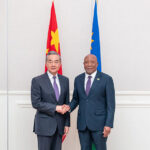The Gombe State chapter of the Coalition of Northern Groups (CNG), alongside various civil society organisations (CSOs) and key stakeholders, have held a town hall meeting to brainstorm on the proposed Tax Reform Bills introduced to the National Assembly by President Bola Tinubu.
The event, which had its theme, ‘Tax Reform Bills: A Catalyst for Economic Growth or a Burden on the People?’, brought together a cross-section of policymakers, academics, civil society actors, community leaders, youth groups, and concerned citizens to deliberate on the implications of the proposed tax reform bills.
In a joint statement signed by Comrade Muhammed Usman Deba, Gombe State Coordinator of CNG; Comrade Habiba Isah Gaude of Voice for Rural Women; and Comrade Lawal Idris Lawantee, Acting Chairman of the CSOs, the participants collectively rejected the Tax Reform Bills.
They expressed deep concerns over the economic strain the reforms could impose, particularly on already vulnerable communities and businesses.
“The participants observed that the proposed tax reform bills, far from being catalysts for economic growth, would increase the existing economic challenges facing the North and Nigeria as a whole. The reforms are likely to deepen poverty, increase unemployment, and stifle local businesses already grappling with economic hardship,” the statement read.
The meeting highlighted specific provisions in the bills that would reduce funding to key national institutions, such as the Tertiary Education Trust Fund (TETFUND), the National Information Technology Development Agency (NITDA), and the National Agency for Science and Engineering Infrastructure (NASENI).
The defunding of these institutions, participants argued, would hinder education, innovation, and technological progress, particularly in Northern Nigeria.
Participants at the meeting also criticized the perceived targeting of Northern Nigeria, which they believe would disproportionately bear the economic burden of the reforms.
They decried the lack of meaningful consultations during the bills’ formulation, emphasizing that the policies fail to address the realities and needs of most Nigerians.
“The participants warned that the implementation of such reforms could fuel discontent and add to social tensions, particularly in the North, where citizens are already facing severe economic and security challenges,” the statement continued.
Participants also advocated for the relocation of all banks’ corporate headquarters to Abuja, describing the Federal Capital Territory as a neutral zone free from ethnic or religious biases.
“It is unjust for banks to situate their headquarters in certain states and allow those states to disproportionately benefit at the expense of contributions from other regions,” the statement argued.
The group called on Northern governors, business leaders, and organizations to exclusively transact with banks that comply with this recommendation.
The town hall meeting also called for the reopening of land borders and the reduction of Value Added Tax as well as the proposed telecom tariff hike.
“The continued closure of land borders has had a devastating impact on the economy and livelihoods of citizens, particularly in border communities. The town hall urges the Federal Government to reopen land borders immediately to ease economic hardship, promote trade, and reduce the burden on struggling Nigerians.
Reduction of VAT to 3%:
The Federal Government should halt the proposed VAT increases and instead reduce the current VAT rate to 3%. This reduction will provide relief to citizens and businesses while encouraging economic activity. Alternative revenue-generating strategies must be explored to avoid placing additional financial pressure on ordinary Nigerians.
Rejection of Increased Telecommunication Tariffs:
Any attempt by telecommunications companies to increase tariffs will be firmly opposed. The government and regulatory authorities must ensure that telecommunications remain affordable for all Nigerians, given its critical role in economic and social connectivity, ” the statement added.



